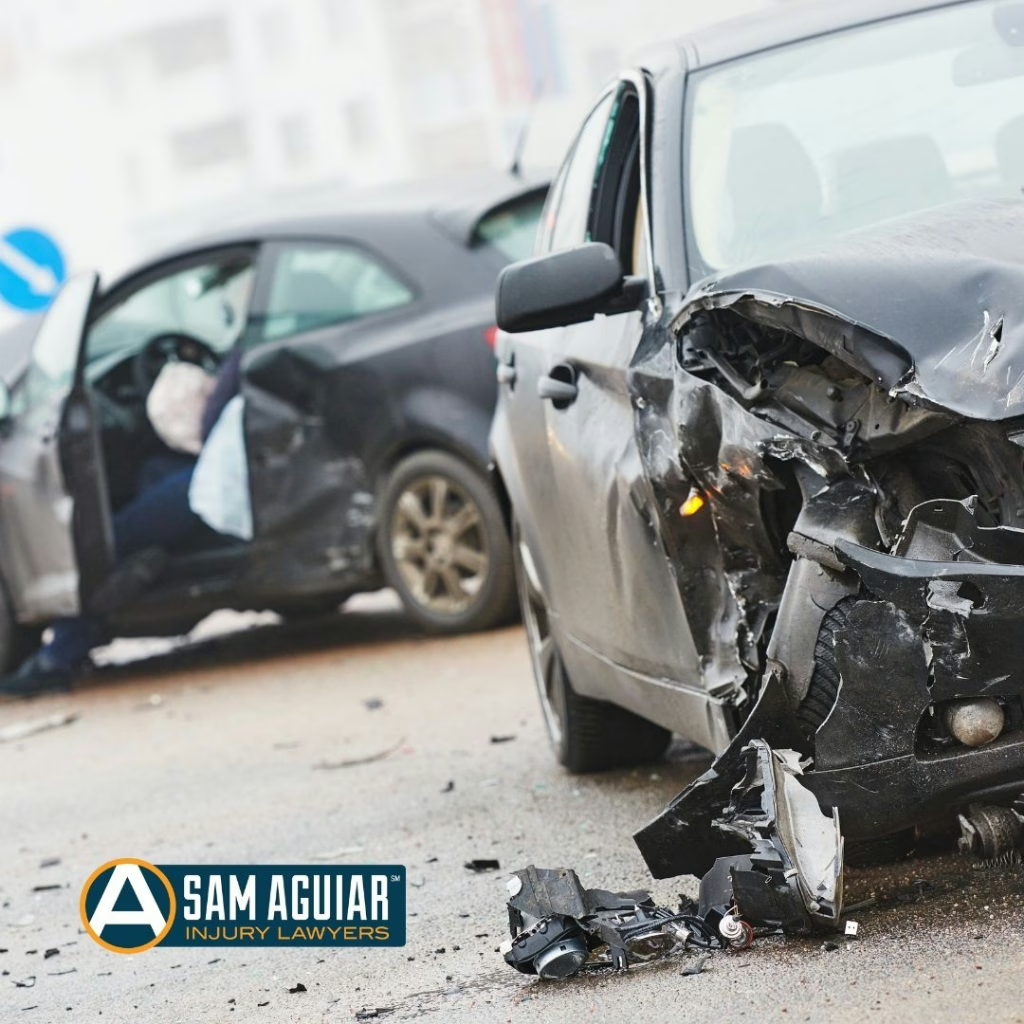
How PTSD Can Develop After an Accident
If you’re struggling with post-traumatic stress disorder (PTSD) after a car accident, it’s important to know that you may be entitled to compensation. PTSD can severely disrupt your life, manifesting as intense anxiety, flashbacks of the traumatic event and difficulty in effectively managing day-to-day activities and relationships. Getting help – with both treatment and legal support – is often critical after experiencing such a trauma.
Certain traumatic experiences during an accident are more likely to trigger PTSD. These include severe injuries, which may cause the victim to fear for their life, and the witnessing of fatalities, which can leave a profound emotional impact. Additionally, the sudden and unexpected nature of accidents contributes to the overwhelming sense of helplessness and terror that characterizes PTSD.

Proving PTSD in a Personal Injury Claim
Demonstrating the presence of PTSD in a personal injury claim requires thorough documentation and credible evidence. Some of the best ways to prove this type of injury include:
- Medical Documentation: Psychologists, psychiatrists, and other mental health professionals play a crucial role in diagnosing PTSD. Their evaluations provide authoritative evidence of the condition and may include standardized diagnostic tests and detailed patient interviews.
- Treatment Records: Ongoing therapy or treatment is vital in establishing the extent of PTSD symptoms. Detailed records from counseling sessions, medication prescriptions, and progress notes can significantly enhance the credibility of a claim.
- Expert Testimony: Opinions from expert witnesses, especially mental health professionals, can bolster a personal injury claim. Their expert insights and supporting evidence can help articulate the severity and impact of PTSD on the victim’s life.
- Personal Impact Statements: Statements from the victim or family members detailing the emotional and psychological toll of PTSD offer a personal perspective on the disorder.
Substantiating a PTSD claim in a personal injury case requires comprehensive and credible evidence to show the profound impact of this condition. Speak to a car accident attorney in Louisville for more information.
Challenges in PTSD Claims
Proving emotional trauma can often be more complex than demonstrating physical injuries. PTSD is an invisible condition that doesn’t show up on an X-ray or a blood test, making it harder to prove. The symptoms can vary widely from one person to another, and understanding the full impact on a victim’s life requires deep psychological insight.
Insurance companies might use various tactics to minimize or dispute PTSD claims. They often view emotional and psychological injuries as less severe compared to physical ones, making the claims process more challenging. Insurers may question the validity of the PTSD diagnosis or argue that the symptoms are unrelated to the incident in question.
Filing a PTSD claim is also made more difficult by the statute of limitations, as there’s often a delayed onset. Symptoms of PTSD may not fully manifest until months or even years after the traumatic event, making it challenging to prove a direct connection to the incident.
If you need help obtaining compensation for PTSD, contact our personal injury lawyers today to schedule a free consultation.


